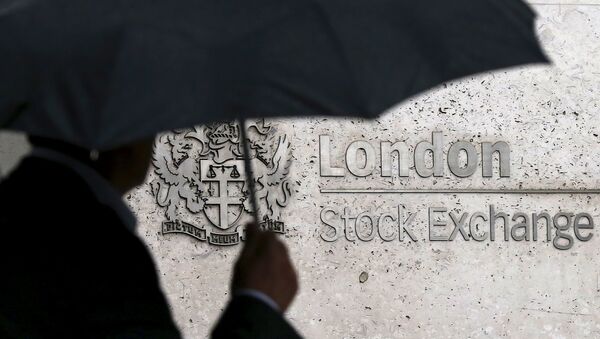Kristian Rouz – European Union’s (EU) antitrust watchdog commenced an investigation into the planned merger between the London Stock Exchange (LSE) and Deutsche Boerse, which co-owns the Frankfurt Stock Exchange.
Authorities feel the proposed deal might jeopardize fair competition in the bloc’s financial sector, even though the UK voted to exit the EU in June.
Possible surges in pricing pose a particular concern amid the European Central Bank’s (ECB) ultra-loose monetary conditions; the ECB has a negative interest rates policy (NIRP) and bond buyouts in place. These programs have already pushed the value of financial markets up.
Deutsche Boerse and the LSE, on their part, suggested a sale of the British company’s French-based clearing subsidiary, LCH.Clearnet (LCH SA), in order to ease the anti-monopoly concerns.
"Financial markets provide an essential function for the European economy. We must ensure that market participants continue to have access to financial-market infrastructure on competitive terms," Margrethe Vestager, head of the EU antitrust regulator, said.
The Deutsche Boerse/LSE merger deal was announced several months ago, and this is the first time the European Commission (EC) has voiced its concern. The proposed deal, the European authorities say, might particularly jeopardize the market's competitive terms for derivatives trading and clearing, boost the value of German stocks and Italian futures, and affect the repo (sale and repurchase) market.
Given that the proposed Deutsche Boerse/LSE giant would fall into the jurisdictions of two separate central banks, the Bank of England (BOE) and the ECB, not to mention different national government regulators, it would be hard for the authorities to oversee the huge volume of financial market transactions in order to prevent wrongdoing. Clearing, a form of mediation between the two parties in case one of them defaults, is a key financial crisis-prevention tool, and that is part of the reason the LSE-proposed sale of LCH SA might resolve the EU concerns.
LCH is the world’s biggest interest rate swaps clearer.
A thorough investigation was "expected," a spokesperson for Deutsche Boerse said, having noted that the parties will "continue the constructive dialogue and cooperation with the EU competition authority."
Meanwhile, French Finance Minister Michel Sapin upheld the probe, also saying that the megamerger would “curtail competition and create extra risk”, while Belgian Finance Minister Johan Van Overtveldt warned the European antitrust authority in written form, saying that the deal would have “an impact” on the financial stability of the Belgian and broader European economies.
The EC will be reviewing the deal until mid-February 2017, and the deadline is subject to extension. Subsequently, should approval be granted, the deal would close tentatively in 2Q17. Previously, in 2012, the EU antimonopoly regulator blocked another proposed deal between Deutsche Boerse and NYSE’s Euronext due to similar allegations that it threatened to yield lower competition.
Should the Deutsche Boerse/LSE deal come through, Paris-based Euronext’s capitalization is expected to drop by a dramatic 2.8 bln euros, a huge blow to NYSE interest on the European market. London, on the contrary, would gain massive leverage on the European economy in the aftermath of Brexit, boosting the UK’s bargaining power in the lengthy divorce process.





